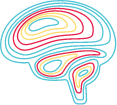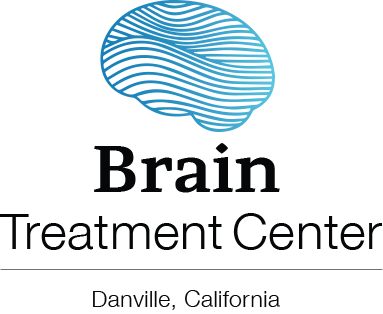Therapy that utilizes pulsed magnetic fields to change neural activity. TMS delivers stimulation to one location at a fixed frequency for all patients.
Procedure that records the electrical activity of the heart.
Procedure that records the electrical activity of the brain
Non-invasive approach that combines TMS technology with the sophisticated diagnostics of an individual’s EEG and EKG for a tailored protocol to achieve optimal brain health.
FAQs:
FAQs:
MeRT stands for Magnetic e-Resonance Therapy, a highly customized use of Transcranial Magnetic Stimulation (TMS) to address a wide range of neurological conditions. Based on sophisticated diagnostics, MeRT is a painless, non-invasive, non-pharmaceutical approach tailored to each person’s unique brain.
MeRT uses a proprietary brain wave analysis to identify the areas in the brain in need of improved function or communication. An EEG is performed on each patient to determine the exact frequency of the brain. These results are then reviewed and evaluated by the clinical and scientific team at Braincare Performance Center. The patient’s EEG and EKG are analyzed to ascertain the brain’s pattern of function, detect brain activity, and determine its state of neural synchronization.
Our physicians use this information to develop a client-specific and targeted approach designed to encourage and restore healthy brain communication. The treatment protocol is completely tailored to each person’s brain by location, frequency, and output intensity or amount of energy delivered. This technology works by using a magnetic coil to gently neuromodulate the brain’s electrical activity. This therapy gently stimulates the specific locations in the brain which can lead to improved function. This can lead to significant clinical improvements.
Unlike standard Transcranial Magnetic Stimulation (TMS) therapy, which delivers stimulation to one location at a fixed frequency for all patients, the Magnetic e-Resonance Therapy (MeRT) approach individualizes the treatment frequency, location, and output intensity based on each patient’s unique brain. MeRT elevates the benefits of TMS technology by pairing it with EEG and EKG diagnostics for a more sophisticated solution to meet an individual’s needs. This results in a customized approach to deliver the best possible outcomes.
MeRT therapy delivers magnetic pulses to specifically targeted areas of the brain. A typical appointment of MeRT consists of 30 trains of electromagnetic stimulation delivered for 6 seconds each with 54 seconds of rest period in between trains to a specific location on the head. A typical appointment lasts approximately 45 minutes.
The primary objective of treatment is functional recovery. Results are individual in nature. Common benefits include improvements in quality of life:
- Sleep
- Concentration and focus
- Mood
- Attention span
- Sociability and interaction with others
- Motivation
- Mental clarity
- Memory
- Ability to adapt to change
- Self-confidence and self-esteem
- Emotional stability
- Stress
- Anxiety
- Pain
- Fewer cravings (e.g., drugs and alcohol)
Our current data indicates side effects are few and generally mild. The most common side effect is a mild tension headache at the site of stimulation, which can last 1-2 hours and responds well to over-the-counter analgesics.
Other possible side effects are hyperactivity, increased agitation, or euphoria. With brain stimulation there is also a risk of seizures; however, the risk is minimal.
Since each brain is unique, the MeRT protocol will be different for each patient as it is based on the individual’s own EEG/EKG data.
Absolute contraindications for MeRT:
- Pacemaker
- Defibrillator
- Vagal nerve stimulator
- VP shunt / magnetic intracranial shunts
- Deep brain stimulator
- Epidural cortical stimulator
- Steel shunts/stents
- Cranial metal fragments (i.e. shrapnel, excluding titanium)
- Cochlear implant
- Aneurysm clips, coils, pipelines flow diversion
- Pregnant or breast feeding
- Primary brain cancer / metastatic legions in brain (unless palliative care)
- Magnetic dental implants
- Implanted cardio-verter defibrillators (ICD)
- Ocular implants
Relative contraindications (requiring closer protocol attention, but not disqualifying someone from receiving MeRT):
- History of seizure or seizure disorder
- Titanium shunts/stents
- Spinal cord stimulator
- Hearing aids
- Ferrous cortical implants
- Magnetic ink tattoo
- Bipolar disorder type I/II
- Baha implant
We provide you with the appropriate paperwork to submit to your insurance company for determining coverage or reimbursement.
We take all major credit cards including Visa, MasterCard, American Express, and Discover.

At Brain Treatment Center, we help you on your journey to optimal brain health by providing
the highest standard of care characterized by empathy and expertise. We take the time to understand
your specific needs so you can reach your brain health goals.

